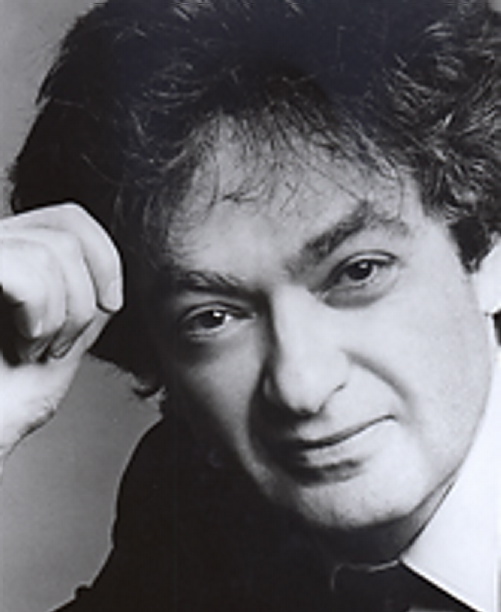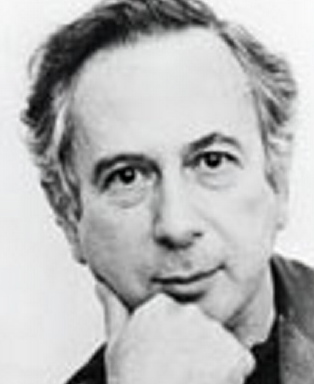As observed here several times before, one can become immortal for less than the price of a Buick. Just commission a work for your favorite instrument from your favorite living composer.
Lewis Kaplan, co-founder, with Robert Beckwith, of the Bowdoin International Music Festival, recalls commissioning three works by noted composers for $150.00 each. Another commissioned work, George Crumb’s, “Eleven Echos of Autumn,” which will be reprised at this year’s festival, has been recorded 200 times, enough to keep anyone’s name alive for at least a while.
I spoke with Kaplan, who will be retiring from the Bowdoin festival after this year, about his experiences since its beginning 50 years ago. He talked of a string of serendipities, beginning with a concert conducted gratis in the Bowdoin gymnasium by Arthur Fiedler of the Boston Symphony. But the trajectory of the festival has been more along the lines of “God helps those who help themselves” – with hard work, dedication and being in the right place at the right time.
Its genesis is a case in point. The head of Bowdoin’s music department, Professor Robert Beckwith, had been running a modest summer music program that was about to be canceled for 1964. He pleaded with then-vice president of Bowdoin Wolcott Hokanson to revive it and was told that if he could get new talent in 24 hours, it might be considered.
Beckwith called his friend Kaplan, a Juilliard professor who had organized a well-regarded group in Manhattan called the Aeolian Chamber Players, and told him to come to Brunswick the next day. After Kaplan, who had a busy schedule teaching and performing, finally agreed, Beckwith concluded with: “Oh, and bring us your thoughts on a summer music school.”
The rest, as they say, is history.
“We had three dreams,” said Kaplan, “a summer music school for gifted students, with public concerts, a continuing festival each year at Bowdoin, and a teaching program for music teachers.” The latter is a dream that has never materialized, in part because of the de-emphasis of the arts in public schools.
Students the first year numbered 19 or 20, Kaplan recalls. The concerts, which were held in classrooms, were lucky to have an audience of 50 until 1972, when Kresge Auditorium was completed. The festival now has 250 students from all over the world, down somewhat from its recent peak due to a greater concentration on excellence in the auditions, Kaplan said.
Two well-funded and staffed programs for voice students never caught on. “The first one, in the 1970s, produced ‘Cosi Fan Tutti’ at the First Parish Church. The instrumentalists apparently didn’t like being in a pit orchestra.” A second program, with a three-year grant, still did not produce the desired crossover between voice and instrumental students, and eventually the idea was dropped. Kaplan still thinks a voice program could also help instrumentalists, for example in breath control.
The festival, in its 50 year history, has built a reputation for excellence. Its graduates play with the great orchestras of the world and “almost every string quartet has a member who was a student at Bowdoin,” Kaplan observed.
One of the accomplishments of which the director is most proud is the new student fellowship program, for which he raised $2 million in donations, the largest of which was $50,000.
The program, which this year accepted 23 students from among 140 applicants, pays room, board and tuition, and the students can study with whichever instructor they want. “If you are a musician, the festival is the best place in the world to prepare for what you want to do. There’s nothing like it anywhere.” At least, not yet.
Two years ago, Kaplan conducted a work by Zhao Jiping, a well-known Chinese composer (with scores for “Farewell My Concubine,” “Raise the Red Flag,” etc.) who is also president of the Xi’An Conservatory and head of the Chinese Musicians Association. (Xi’An, a city of 6 million that was once the capitol of China, is best known here for the hundreds of terracotta warriors unearthed from one of its imperial tombs.)
“He found the festival a vision of what can be done for students,” Kaplan recalls. Now it will be duplicated, he hopes, in China. With Kaplan as director.
Musicians, if they do not die very young, tend to live a long time. Kaplan, at an age when most men retire, is about to begin a new venture on the opposite side of the earth. Does this mean that the future of classical music is in Asia, where it seems more appreciated than in the culture where it was born?
“Not at all. As in Maine, the tide comes in and the tide goes out, but the Beethoven quartets will endure forever.”
SOMETIMES THE HISTORY of the Bowdoin International Music Festival reads like a fairy tale, in which befriending a stranger pays unexpected dividends.
When Lewis Kaplan was a boy, his grandmother owned a hotel near Liberty, New York, which offered summer entertainment. One of the musicians in its band was a young pianist named George Rochberg, who later became a well-known composer.
In the following years, Kaplan conducted some of Rochberg’s premieres, such as “La Bocca della Verita,”
When Rochberg’s oldest child, Paul, died of a brain tumor, the Kaplans sent a note of sympathy.
Six months later came a phone call from Rochberg’s wife, Gene, thanking them for the note. She also mentioned that the composer had decided to write a work for the festival, then just beginning.
Rochberg, known for his serialist (12-tone) work, abandoned that style entirely in the new piece, “Contra Mortem et Tempus,” which marked a major turning point in his career.
Christopher Hyde is a writer and musician who lives in Pownal. Contact him at:
classbeat@netscape.net
Copy the Story LinkSend questions/comments to the editors.




Success. Please wait for the page to reload. If the page does not reload within 5 seconds, please refresh the page.
Enter your email and password to access comments.
Hi, to comment on stories you must . This profile is in addition to your subscription and website login.
Already have a commenting profile? .
Invalid username/password.
Please check your email to confirm and complete your registration.
Only subscribers are eligible to post comments. Please subscribe or login first for digital access. Here’s why.
Use the form below to reset your password. When you've submitted your account email, we will send an email with a reset code.